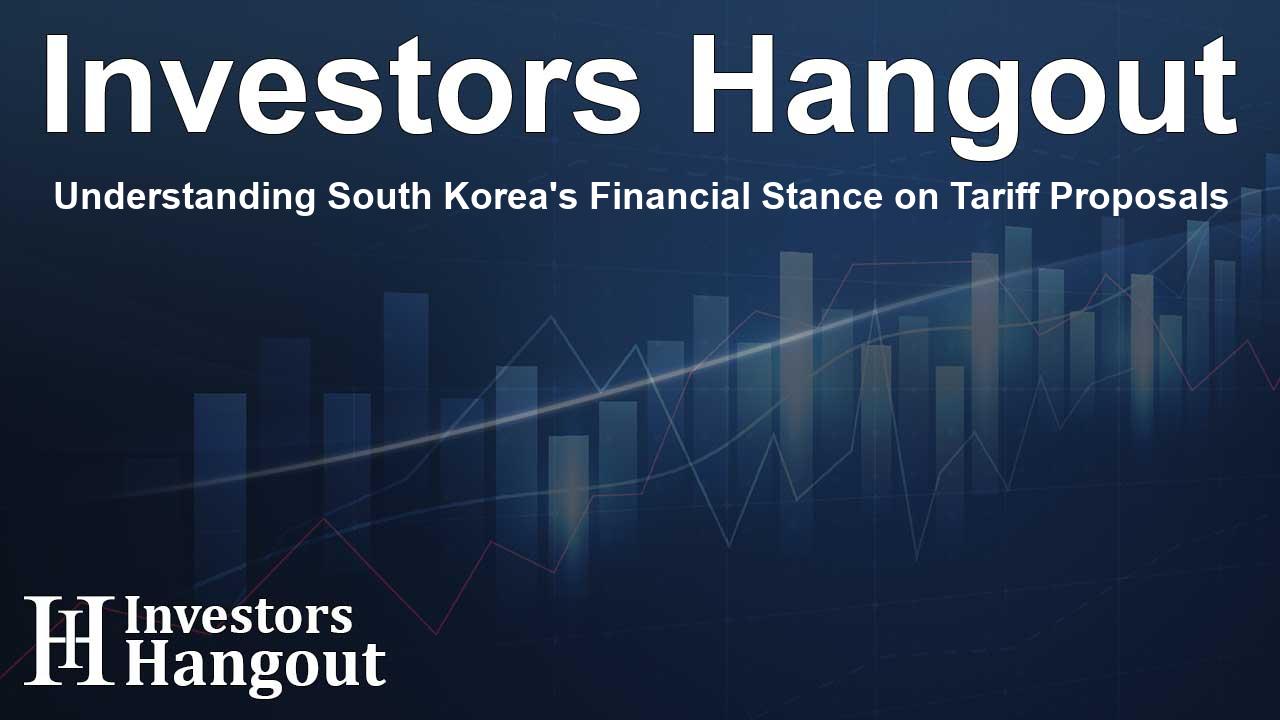Understanding South Korea's Financial Stance on Tariff Proposals

South Korea's Response to Tariff Proposals
Recent discussions surrounding a proposed $350 billion investment by South Korea in tariffs have sparked significant debate. According to Seoul's National Security Adviser, Wi Sung-lac, the country cannot afford such an upfront payment. On national television, Wi emphasized that they are not negotiating from a place of tactics but from the reality of their financial capabilities.
Details of the Proposed Deal
Initially, the agreement reached in July aimed to reduce U.S. tariffs from 25% to 15%. South Korea's commitment involves loan guarantees, equity investments, and loans, rather than an immediate cash payment. Despite this, President Trump insisted that the payment would be made upfront, which contradicts the previously stated terms.
Financial Consequences of Upfront Payments
Concerns have arisen regarding the potential financial implications of an upfront payment. President Lee Jae Myung warned that such a move could lead to a financial crisis reminiscent of that in 1997. With substantial foreign exchange reserves, South Korea seeks to ensure budgetary security through potential safeguards, including currency swap arrangements with the U.S.
Challenges in Negotiations
Furthermore, the negotiations continue to face challenges as the U.S. seeks control over the distribution of the funds and the overall payment structure. This lack of flexibility has led to escalating tensions, especially after reported immigration raids at a major battery plant that further strained relations between the countries. As a result, Wi stated that alternatives are being explored to ensure a resolution may be reached.
The Road Ahead
As discussions progress, South Korea aims to resolve these financial disputes during the upcoming economic summit. The focus is not solely on tariffs but involves broader economic relations and the impact on industries like automotive and technology. The outcome of these negotiations will have lasting implications not just for South Korea but also for the global economy.
Frequently Asked Questions
What is the $350 billion investment proposed by South Korea?
The investment refers to a financial commitment that South Korea was expected to make concerning tariff agreements, but the country's leaders have clarified it cannot be made in cash upfront.
Why is South Korea concerned about making upfront payments?
South Korean officials fear that paying a large amount upfront could lead to severe financial instability, similar to past economic crises.
What alternative payment options is South Korea considering?
Instead of an outright cash payment, South Korea proposes using loans, loan guarantees, and equity investments to fulfill its commitment.
How have negotiations between the U.S. and South Korea been affected?
Negotiations have been strained by differences over control of funds and payment structures, leading to ongoing discussions and future negotiations.
What impact could these tariff discussions have on the global market?
These discussions will likely have broader impacts on international trade dynamics, particularly affecting industries dependent on equitable trade agreements and tariffs.
About The Author
Contact Logan Wright privately here. Or send an email with ATTN: Logan Wright as the subject to contact@investorshangout.com.
About Investors Hangout
Investors Hangout is a leading online stock forum for financial discussion and learning, offering a wide range of free tools and resources. It draws in traders of all levels, who exchange market knowledge, investigate trading tactics, and keep an eye on industry developments in real time. Featuring financial articles, stock message boards, quotes, charts, company profiles, and live news updates. Through cooperative learning and a wealth of informational resources, it helps users from novices creating their first portfolios to experts honing their techniques. Join Investors Hangout today: https://investorshangout.com/
The content of this article is based on factual, publicly available information and does not represent legal, financial, or investment advice. Investors Hangout does not offer financial advice, and the author is not a licensed financial advisor. Consult a qualified advisor before making any financial or investment decisions based on this article. This article should not be considered advice to purchase, sell, or hold any securities or other investments. If any of the material provided here is inaccurate, please contact us for corrections.
